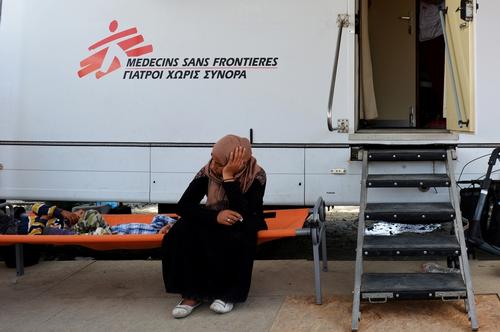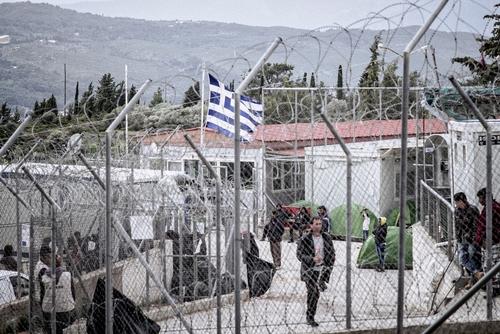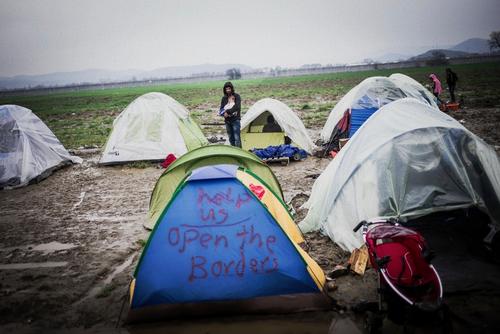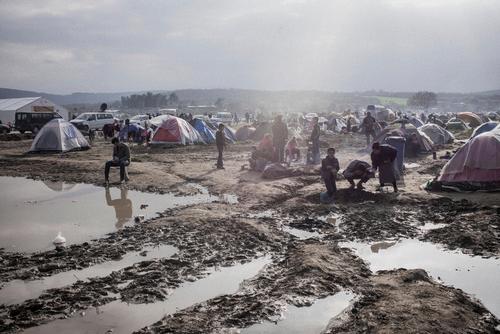In the late afternoon of 18 May, MSF teams in Idomeni, Greece witnessed a protest, in which several of the camp’s trapped residents were pushing a train wagon towards the closed national border with the Former Yugoslav Republic of Macedonia (FYROM).
The Greek police intervened to stop the protest and tear gas was deployed in the camp, also entering the MSF clinic, which caused us to evacuate the facility along with 12 patients, five of whom were children. MSF teams continued medical activities from just outside the main camp area.
"It was a desperate situation. When tear gas entered our clinic, we evacuated to the outskirts of the camp with the patients." said Cristian Reynders, Field Coordinator in Idomeni. "There were five children among them. Some had to be carried. We referred a one-year-old to hospital for treatment, and continued to care for the others."
When the situation calmed down MSF staff took advantage of the relative calm to distribute 240 litres of water to people in need. Tensions then rose again and more police reinforcements arrived. Hundreds of people, including many women and children, fled the camp fearing for their safety. At that time MSF took the difficult decision to evacuate all the staff from Idomeni for security reasons.
"I saw hundreds of women and children flee. Three long lines of scared people running away in fear. I didn’t sleep at all last night. It was awful to take the decision to leave these people who are in such desperate need," continued Reynders. “The European leaders have abandoned these people behind closed borders in inhumane conditions. They are growing more desperate by the day: they have no access to asylum procedures, relocation or family reunification. No humane alternative is being offered to them. Idomeni has become the symbol of the inhumanity of the European Union migration policies."
This morning on 19 May, MSF was able to re-enter Idomeni camp, where we have now resumed our full medical and non-medical activities.
Between 6,000 and 9,000 people, approximately half of whom are children, are stranded Idomeni, following the complete closure of the Balkans route to northern and western Europe in March.
Some have been there for over three months. All are vulnerable to violence at the hands of the border police and smugglers who are now almost their only option to reach their family members elsewhere in Europe.
Over the past months, Médecins Sans Frontières (MSF) teams have treated babies as young as six weeks old for exposure to tear gas, and ten-year-old children for rubber bullet wounds.
On a daily basis, MSF teams deal with the health consequences of long term settlement in a temporary camp that does not provide adequate shelter, health services, or sanitation. Last week the MSF team concluded a vaccination campaign to protect the more than 3,000 child residents in the camp from preventable diseases.






